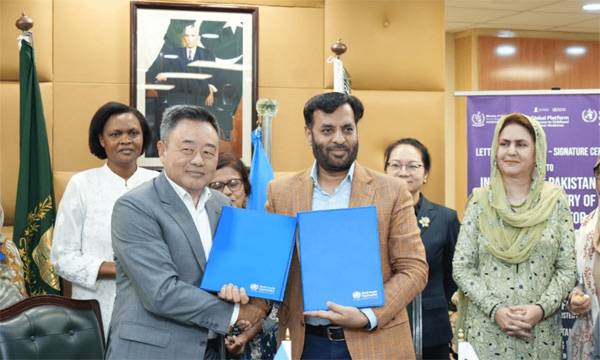ISLAMABAD – The Ministry of National Health Services signed an agreement with the World Health Organization (WHO) to provide free cancer medication to children under a new global initiative. The agreement, signed under the Global Platform for Access to Childhood Cancer Medicines (GxCM), is expected to benefit over 8,000 children annually.
Federal Minister for Health, Mustafa Kamal, announced the agreement during a ceremony held in Islamabad on Tuesday, emphasizing the government’s commitment to improving childhood cancer survival rates. “Our goal is to increase the survival rate from 30% to 60%,” he said.
The WHO will provide both technical and operational support, while UNICEF will handle the procurement and delivery of medicines across Pakistan. The program specifically targets low- and middle-income countries; where childhood cancer survival rates are alarmingly low, sometimes below 30%, due to lack of timely diagnosis and treatment.
National Cholera Control Plan 2025–2028 launched Federal Minister Mustafa Kamal launched the National Cholera Control Plan (2025–2028) aiming to reduce waterborne diseases through improved sanitation, vaccination, and clean drinking water initiatives, at the same event where he signed agreement with World Health Organization (WHO) and UNICEF regarding provision of free medication for children suffering from cancer on Tuesday in Islamabad.
“68% of hospital cases can be prevented by simply providing clean drinking water,” said the minister, while criticizing unchecked urban expansion without basic infrastructure like sewage treatment plants. In his address, Kamal stressed the urgent need for preventive healthcare. “Hospitals are overflowing with children suffering from cancer. No country can sustain a healthcare system where prevention is ignored and only treatment is prioritized.” He further highlighted several health challenges facing Pakistan which include 43% of children who suffer from malnutrition, 11,000 women dying during pregnancy annually, the rising birth rate of 3.6 that is unsustainable for economic growth and nearly 8,000 new childhood cancer cases each year.
